BASIC PROJECT DATA
Project ID: PA1A075
NEED AND ADDED VALUE FOR THE DANUBE REGION STRATEGY
The project will strengthen the sustainability of water transport between the Slovak Republic and other states on the Danube waterway. At the same time, the feasibility study will undertake a first step towards fulfilling the requirement to complete the construction of the TEN-T core network by 2030 stemming from Regulation (EU) No. 1315/2013 of 11 December 2013 on Union guidelines for the development of the trans-European transport network and repealing Decision No. 661/2010 / EU.
Sufficient traffic safety and waterway transport capacity depend directly on the degree of security of fairway (depth and width of the fairway and underpass under the line structures) as defined by relevant international regulations (Danube River Shipping Convention, AGN Agreement, Dunaj Commission Recommendations). In the section of the Danube between rkm 1880.26 – 1708.20 there are several locations and partial sections in which the parameters of the fairway are insufficient.
OBJECTIVE(S) OF THE PROJECT
The main objective of the project is to develop a feasibility study, which will be the first phase of all activities aiming at a fundamental improvement of navigability conditions for international navigation operations on the Danube waterway in section rkm 1880.26 – 1708.20 (entire SK waterway stretch). The feasibility study is the recommendation of a technical solution that is feasible both technically and economically and will not have a negative impact on the environment. The chosen implementation variant of technical measures must respect the interests of environmental protection and complement other transport, economic and land-use planning interests in the area concerned.
PLANNED PROJECT ACTIVITIES
The Feasibility Study will consist of the following parts (I. – XII.):
I. Analysis of the development (period 1992 – 2016) and analysis of the present state of the Danube waterway in the area rkm 1880.26 – 1708.20 (Morava – Ipeľ) including its components with emphasis on parameters of the runway and their safety;
II. Analysis of the impact of navigational track parameters and nautical maneuvering conditions in the rkm range 1880.26 – 1708.20 for navigational safety conditions;
III. Influence of the route parameters of the section on the transport capacity of the international waterway in terms of transit and port operation Bratislava, Komárno and Štúrovo;
IV. Definition of objectives to be achieved, definition of constraints and conditions;
V. Analysis of all available documents and binding documents necessary for the feasibility study (legislation, body decisions, studies, research, projects, urban planning, etc.);
VI. Variant draft technical measures necessary to achieve targets against the zero option (current status under point 1);
VII. Definition of measures and their phasing out according to the different solutions;
VIII. Main and secondary effects of solutions for transport, tourism, energy, cross-border impacts;
IX. Environmental Study – Assessment of the impact of measures on the environment (EIA);
X. Preliminary assessment of flood protection;
XI. Economic evaluation of the technical solution variants by the method for inland waterways;
XII. Conclusions and recommendations.
TRANSBOUNDARY IMPACT
The international waterway of the Danube in the section between rkm 1880.26 – 1708.20 is administered by the competent authorities of the Slovak Republic in accordance with the relevant international conventions, with the administration of the border sections of this section together with the competent authorities of Austria and Hungary.
PROJECT BENEFICIARIES / TARGET GROUPS
Waterway administrations within the Danube Region. The outcomes of the study will also lead to benefits for commercial but also for all for others users of waterway.
STATUS AND TIMEFRAME
Start date: 09.2018
End date: 10.2022
NOTES
The public procurement was cancelled in August 2019 for internal objections and JASPERS´s recommendation, who identified an inadequate description of the Terms of Reference of the Feasibility study, which could result in the successful tenderer providing incomplete outcomes and could result in the study results not being funded by EU funds. A new public procurement procedure is planned.
FINANCING
Total budget: EUR 5,051,628.80 (including VAT)
EU funds: EUR 4,293,884.48 to be funded by Operational Programme ‘Integrated Infrastructure’ 2014-2020 (ERDF and CF)
National funds: EUR 757,744.32
PROJECT TEAM
Project leader: Ministry of Transport and Construction of the Slovak Republic – Section of water transport of the Ministry
(website: www.mindop.sk)
Address: Námestie slobody č. 6, 810 05 Bratislava / Slovakia
Address of the Section of water transport: Lamacska cesta 8, 811 04 Bratislava / Slovakia
PROJECT ENVIRONMENT
RELEVANT LEGISLATION
TEN-T Regulation: The Regulation (EU) No 1315/2013 on Union guidelines for the development of the trans-European transport network (TEN-T Regulation) requires Member States to upgrade a so-called TEN-T Core Network by 2030, so that minimum requirements for the transport infrastructure are fulfilled.
Furthermore, the proposed measures under the feasibility study will respect the relevant European legislation, in particular the provisions of Directive 2000/60 / EC establishing a framework for Community action in the field of water policy. The feasibility study will compare all technical measures with emphasis on the provisions of Art. 4.7 of the Directive (“Water Framework Directive”).
EUSDR EMBEDDING
EUSDR COMPLIANCE
OTHER RELEVANT ISSUES
PROJECT REQUIREMENTS
Active participation and involvement of key stakeholders.
Selecting a suitable candidate for a feasibility study realization.
FOLLOW – UP PROJECT
Phase II.- Preparation of the investment project (resulting variant) and its evaluation by the department “value for money” of the Ministry of Finance; to order EIA for individual function units as preparation of funding the project and consequently secure own funding
Phase III. – Implementation of resulting variant
Potential sources of financing – OPII and State budget (EU and National/regional funds)
META DATA
Data provided by: Marian Mihalik (ARVD / Slovakia) – 09.2018
Last update by: Katarina Taričova (Ministry of Transport and Construction of the Slovak Republic) – 24.04.2014
Download pdf.



